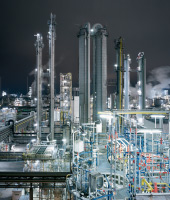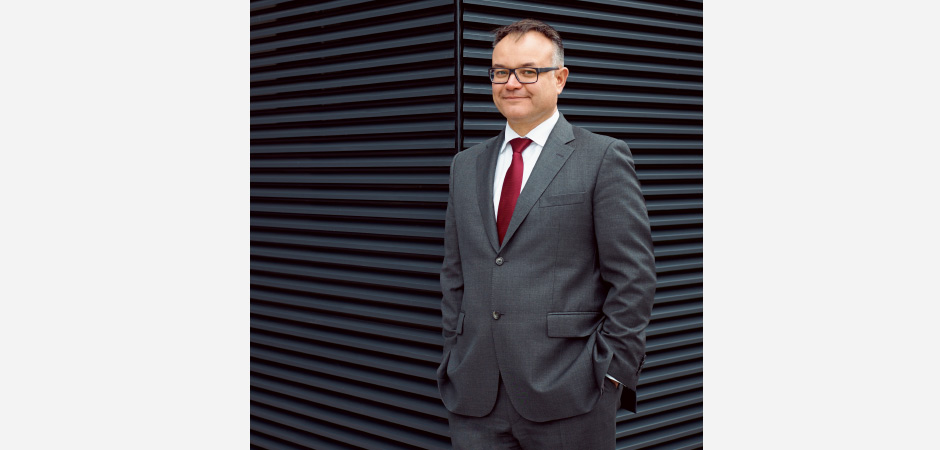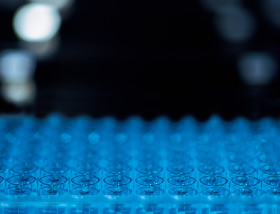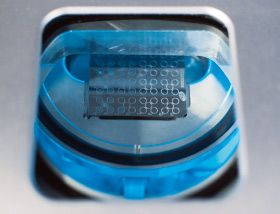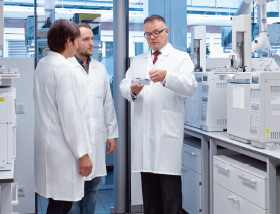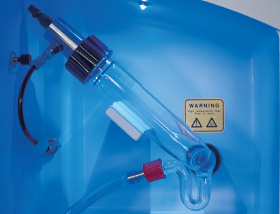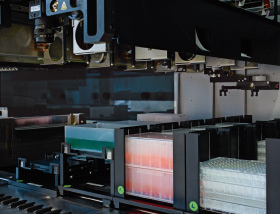Market-Oriented Research
How does basic research contribute to the Group’s business success, what distinguishes Europe as a research center, and where is there room for improvement? An interview with Dr. Thomas Renner, head of WACKER’s central research facility, the “Consortium für elektrochemische Industrie.”
There are many companies that highlight research and development as a success factor. So what makes R&D at WACKER different and better than at its competitors?
Dr. Renner: Our R&D isn’t completely different from that conducted at other chemical companies, of course, but there are a couple of important ways in which we differ. For one, we consistently orient our research to global megatrends and markets that will be important in the future. We also ask ourselves a number of questions: what challenges will the future bring? And how can we bring our specialized expertise to bear on finding solutions to those challenges? It’s clear to us that customers expect chemical companies to do more than just produce chemicals. The markets demand functional materials, i.e. with specific properties to solve specific problems. That’s why we no longer start by developing new chemicals and then trying to find applications for them. Instead, we take the exact opposite approach: we identify challenges that the market faces, work out what properties are needed to meet those challenges, and then, drawing on our core competencies, develop new, targeted materials.
Could you give us an example?
Take the issue of energy storage. All the electronic paraphernalia that has become an essential part of our day-to-day lives – smartphones, tablets, laptops and the like – can continue advancing only if we make batteries more efficient. The same applies to electromobility or decentralized power supply from renewable energy sources. And silicon – where WACKER has over 50 years of experience – is the most efficient medium for storing lithium ions. For that reason we’re making battery technology a major focus of our research.
Even though WACKER’s Corporate R&D is headquartered in Germany, 80 percent of your sales come from abroad. Doing research in Europe for overseas growth markets – how does that tie up?
In our case very well. We conduct our research centrally without sacrificing customer proximity during the development phase. At the Consortium – our central research division at the heart of our company – we focus our energies on long-term projects and on projects aimed at opening up new business areas in the future. At the regional level, our technical centers work with our customers to develop products tailored to concrete applications. This ensures the line of communication with users is open at all times. We also establish technical competence centers in those markets that set the global pace of development in certain fields of technology. South Korea, for example, leads the field of electronics, which is why we built our Center of Electronics Excellence there in order to develop silicones for electronics applications. The Center allows us to identify technological and market trends early on and offer customized solutions precisely when they’re needed.
“The pace of innovation in Europe must be
stepped up.”
What is your assessment of Europe as a place to do research – both now and in the future?
Europe has some definite advantages, especially when it comes to research. That was also the conclusion reached by an Oxford Economics study recently published by the German Chemical Industry Association. The chemical industry is one of the world’s most research-intense businesses, with global R&D expenditures reaching € 112.2 billion in 2013. Nearly a quarter of that amount – € 26.9 billion – was spent in Europe. Intense research efforts have a positive effect on our ability to compete, because product and process innovations are key ways of offering customers added value and offsetting cost disadvantages. Our most important resources in Europe are knowledge and education. Here in Europe, we have the big advantage of an extensive network of excellent, globally respected universities and state-sponsored research associations. WACKER is in continual, close dialogue with the scientific community, and pursues fruitful cooperative ventures. We work with the Technical University of Munich, for instance, to fund the Institute of Silicon Chemistry, which serves as an important source of ideas for our own research work. Intense collaboration between industry and academia is essential if Europe is to be competitive. In my view, another of Europe’s advantages is our well-established, socially accepted legal systems for protecting intellectual property. That is much less the case in many other regions. What Europe does need, however, is a faster rate of innovation – we have to get ideas onto the market more quickly.
How do we do that?
Besides a stronger international network, we also need close cooperation with universities in matters of applications-related basic research and – in a similar way to the US – a deliberate entrepreneurial approach by research institutions, aimed at converting scientific findings into successful innovations. I’d like to see more of that in Europe.
“Our research is oriented toward applications and hallmarked by efficiency, measurable goals and clearly defined project plans and milestones.”
How does WACKER gauge the impact that research and development have on our business success? Can it be quantified at all?
Before we plow resources into a research project, we carefully analyze the investment that the project will require and the potential sales and earnings it could yield. We then track costs and anticipated market potential throughout the course of the project, which allows us to take corrective action if need be. The fact that it pays to take a systematic approach is shown by our sales structure. Annually, we earn some € 900 million, or around one-fifth of the Group total, from products that are no more than five years old.

